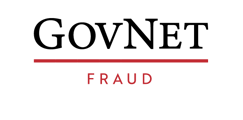In the complex landscape of public sector governance, effective leadership plays a pivotal role in steering organisations towards robust fraud prevention measures. Leaders not only set the tone for ethical conduct but also establish the frameworks and culture necessary to detect and deter fraudulent activities. This blog post delves into the essential qualities and strategies that define effective leadership in public sector fraud prevention in the UK.
Setting the Tone for Ethical Conduct
Effective leaders lead by example, embodying the values of transparency, integrity, and accountability. By demonstrating a commitment to ethical conduct in their own actions and decisions, leaders establish a culture of integrity that permeates throughout the organisation. This sets clear expectations for employees and stakeholders and fosters a collective responsibility for fraud prevention.
Establishing Robust Governance Structures
Leadership in fraud prevention requires the establishment of robust governance structures that provide oversight and accountability at every level of the organisation. This includes implementing clear policies, procedures, and controls to detect, investigate, and report fraudulent activities. By ensuring compliance with regulatory requirements and industry standards, leaders create a framework that strengthens resilience against fraud.
Fostering a Culture of Vigilance
Preventing fraud is not solely the responsibility of specialised departments or units but requires the active participation of all employees. Effective leaders foster a culture of vigilance, empowering employees to recognise and report suspicious behaviour promptly. This involves providing comprehensive training and awareness programmes to equip staff with the knowledge and skills needed to identify and address fraud risks.
Embracing Technology and Innovation
Leadership in fraud prevention entails embracing technology and innovation to enhance detection and prevention capabilities. Leaders must stay abreast of emerging technologies such as data analytics, artificial intelligence, and blockchain, which can augment fraud detection efforts. By investing in advanced technologies and leveraging data-driven insights, leaders can stay one step ahead of fraudsters and minimise vulnerabilities.
Collaboration and Information Sharing
Collaboration and information sharing are essential components of effective fraud prevention efforts in the public sector. Leaders must foster partnerships with law enforcement agencies, regulatory bodies, and industry peers to share intelligence and best practices for combating fraud. By collaborating with external stakeholders, leaders can strengthen the collective resilience of organisations and the broader ecosystem against fraudulent activities.
Conclusion
Effective leadership is critical for driving robust fraud prevention measures in the public sector. By setting the tone for ethical conduct, establishing governance structures, fostering a culture of vigilance, embracing technology, and promoting collaboration, leaders can strengthen resilience against fraud and protect public resources. Through their vision, commitment, and actions, leaders can lead the charge in creating a more fraud-resistant environment in the UK public sector.

Nicole Lummis
After a career in Project Management, I realised how important it was for me to pursue a career with a more creative career path. I have a passion for creating engaging digital content whether through written content or the use of image, graphics or videos.



